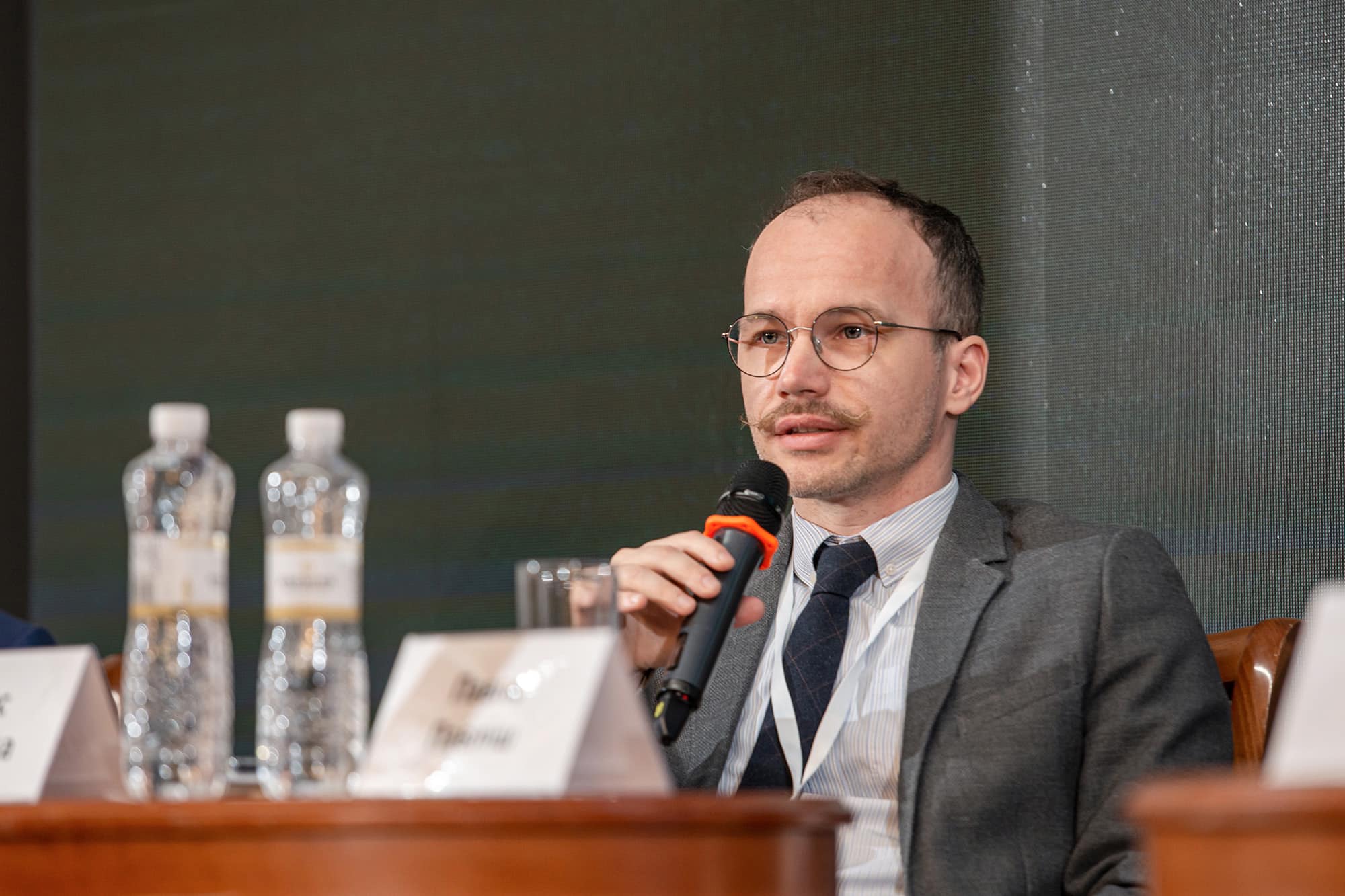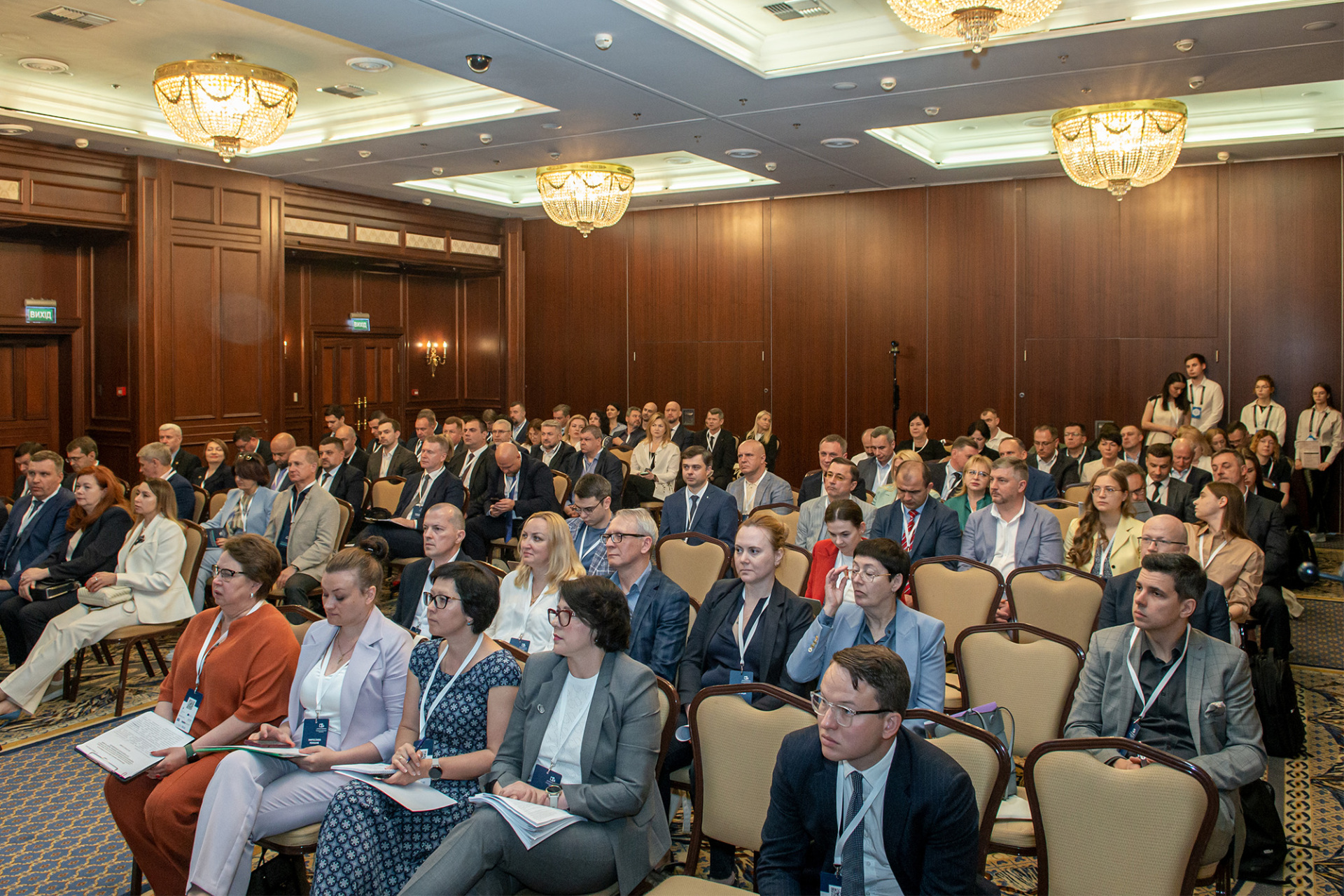EU Project Pravo-Justice Supported the International Panel Conference of the Supreme Court

On May 31, the International Panel Conference “Ukraine on the Way to European Integration: Effective Management of State Property as a Tool for Economy Recovery of Ukraine” took place. Mission and Vision of the Economic Jurisdiction”. The event was organised by the Supreme Court with the support of EU Project Pravo-Justice and other international partners.

"Despite the war, economic processes in the country continue; the GDP level and investments in Ukraine are growing. At the same time, the judiciary plays an important role in the protection and development of the economy, the courts providing for effective and fair consideration of the relevant cases, which contributes to Ukraine’s investment attractiveness and stable economic growth," said Stanislav Kravchenko, President of the Supreme Court, in his welcoming speech. He reported that in 2023, in particular, economic courts considered 230,000 cases, which is 2.2 times more than in 2022.
"This year, the workload of the economic jurisdiction has increased by approximately 50% compared to 2023," noted Stanislav Kravchenko.

Remi Duflot, Deputy Head of the European Union Delegation to Ukraine, stressed out the importance of economic reforms and the need to ensure the effective operation of the enterprises that play a significant role in the national economy.
"The EU supports all reforms taking place in Ukraine, including in the field of insolvency. Despite the war, the economy must develop, and Ukraine must send a convincing and clear message to the partners who are supporting it; expand opportunities for cooperation between public and private enterprises; attract capital investments, and take measures to reduce the corresponding economic risks," said Remi Duflot.
Dmytro Natalukha, Chair of the Committee on Economic Development of the Verkhovna Rada of Ukraine, spoke about the mission of the legislative and judicial authorities in corporatisation of state-owned enterprises. According to him, one of Parliament’s key tasks is to give impetus and create conditions for corporatisation of state assets and development of public-private partnership.
"In their turn, the judges of the economic jurisdiction, by interpreting and applying these legislative norms, will not only contribute to the modern toolkit of state asset management, but also ensure fairness and equality of state and private companies in commercial relations; and bring the country closer to civilised approaches to the management of state assets", said the MP.

Denys Maliuska, Minister of Justice, focused in his speech on two problematic issues of effective management of state property.
"The first is the moratoria that block any effective activity of the state economic sector. Therefore, it is necessary to develop an economic model for the settlement of problematic debt of large state-owned enterprises in order to address this problem. The second issue is the alienation of real estate which is part of the charter capital of joint-stock companies that belong to the State. There is an urgent need to do so as not to create a new wave of taking property from bona fide purchasers who purchased the property of joint-stock companies in the previous years," said Denys Maliuska.
Vitalii Koval, Head of the State Property Fund of Ukraine, emphasised the importance of corporatisation of state-owned enterprises in his intervention.
"The corporatization of state property is critically important for the effective management of more than 2,300 state-owned enterprises that are in the Fund’s corporate portfolio. It will allow delegating decision-making to professionals on the ground; reduce bureaucracy and stop losses; improve the access of enterprises to capital and investments, as has already happened in European countries. This will contribute to an increase in revenues to the budget," said Vitalii Koval.
Virgilijus Valancius, Support to EU Integration Process in the Justice Sector Component Lead, EU Project Pravo-Justice, former Judge of the Court of Justice of the European Union, briefed the participants to the Conference on EU insolvency legislation and practical cases of the Court of Justice. He mentioned, in particular, an important regulatory act – EU Directive 2019/1023 on preventive restructuring frameworks, on discharge of debt and disqualifications, and on measures to increase the efficiency of procedures concerning restructuring, insolvency and discharge of debt, which was adopted in 2019 and is taken into account by all European courts. It provides for effective insolvency procedures that apply to all EU jurisdictions.
"European law regulates insolvency in a cross-border dimension. Decisions made by national courts are recognized by courts of other member states. Uniform principles for the restructuring of debtors or vulnerable companies (both public and private) are in place," said Virgilijus Valancius.
He also emphasized that the EU Court is the only official interpreter of European law, and national courts can address to the EU Court and seek interpretation of any regulatory provisions. The expert also advised Ukrainian judges, when reviewing decisions of the EU Court, to pay attention not only to the resolutive part, but also to the reasoning.
"It is important to address to the EU Court in order to make absolutely sure that the legal norms are applied in practice for the exact purpose and in the exact manner as envisaged by the legislator," said Virgilijus Valancius.

Oleh Mykhaliuk, Key National Expert on Economic Justice, EU Project Pravo-Justice, took part in the conference with a presentation on the topic: "Legislative Innovations in the Field of Liquidation of State-Owned Enterprises: from Theory Towards Practice". He highlighted, among others, in detail the possibilities provided by the Law of Ukraine "On the Peculiarities of the Termination of State-Owned Enterprises, under the SPF’s decision No. 3037-IX dated April 2023", which was developedwith the participation of the Project experts.
"According to the National Economic Strategy 2030, 40% of state-owned enterprises function only on paper. A large number of SEs does not report at all; their share being about 17%. For a long time, the legislation had been lacking effective mechanisms that would facilitate the withdrawal of economically inactive state-owned enterprises from the market. In view of this, Law No. 3037-IX of April 11, 2023 is a legislative innovation that should allow solving the problems that have been accumulating in the economy for years," Oleh Mykhaliuk said.
Speaking of the advantages of Law No. 3037-IX dated April 11, 2023, the expert highlighted the following: the criteria for making a decision on the termination of an enterprise have been defined; the mechanism for selection and appointment of the liquidator has been regulated; the liquidator's mechanism of reporting to the owner within the procedure of termination of the state enterprise is defined; a self-financing mechanism for the termination of the state enterprise is in place; justified deadlines for the procedure of termination of state-owned enterprises have been established; the legal status of a liquidator, his/her rights and obligations within the termination procedure have been determined.
"This law provides that the managing agent will develop and approve a standard plan for the termination of an enterprise alongside standardised reports on the course of the termination procedure. It is expected that those managing the termination will provide all information to the management body in a unified form, and this will ensure proper identification of the risks associated with the termination, timely response from the managing body," added Oleh Mykhaliuk.
The expert of EU Project Pravo-Justice emphasised the importance of the earliest possible implementation by Ukraine of the EU Directive 2019/1023, which introduced preventive restructuring tools. It is expected that the implementation of preventive restructuring mechanisms allows preventing cases of bankruptcy, in particular, of state-owned enterprises that have only temporary financial difficulties. At the same time, Oleh Mykhaliuk, when analysing the European best practices, predicted that the adoption of the relevant draft law would be a rather difficult challenge for Ukraine in view of the state of the economy and the debt capital market.
"Amendments to the existing legislation are only one of the possible tools for introducing a culture of corporate rescue. As evidenced by the experience of European countries, an important key to successful application of EU Directive 2019/1023 is the establishment of trust between creditors and debtors. This requires a high level of integrity of all participants to the preventive restructuring procedure," Oleh Mykhaliuk said.
Video link to the conference here.